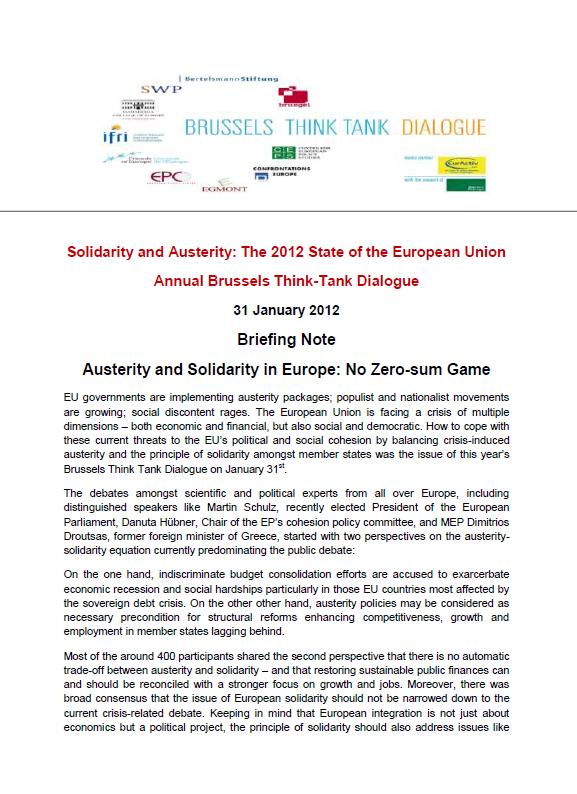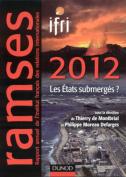Europe
Europe is described here in a geographical sense. It is not limited to the European Union, and includes, for example, the United Kingdom and the Balkans. It remains central to international relations.
Related Subjects

Opening up the G7 to South Korea to Address Contemporary Global Challenges

The G7’s global influence has diminished as powers like China reshape international governance through initiatives such as BRICS and the Shanghai Cooperation Organisation (SCO). With the G7 now representing just 10 per cent of the world’s population and 28 per cent of global GDP, its relevance is increasingly questioned.

The 2012 State of the European Union: Austerity and Solidarity in Europe
The European Power System - Decarbonization and Cost Reduction: Lost in Transmissions?
Europe’s energy policy is commonly defined by three axes of equal importance: security of supplies, competitiveness and sustainable development. The European Commission is mandated to develop the policy tools that allow the implementation of this common policy. Early on, challenges arose from the trade-offs to be made not only between these three pillars but also between a common European policy and national approaches. The European Commission has always had to struggle in attempting to keep a balanced line.
One Year Before the Election: Countdown to a Second Term?
Ifri's December conferences have become a staple event for Europeans eager to understand the evolutions underway in the United States. For our tenth edition, we discussed the main specificities of the U.S. judiciary system and their impact on non-U.S. citizens and entities, the up-coming presidential elections, the economic situation of a country caught between the debt and a recession, and finally, the evolution of U.S. attitudes vis-a-vis the upheavals in the Arab and Muslim World.

Political Europe: Is Hope Reasonable?
The European crisis is primarily the result of economic difficulties and their social effects.
Key Trends in the European Earth Observation Sector
An ambitious Earth Observation (EO) policy could bring significant benefits to Europe both regarding the fight against climate change and the competitiveness of its EO industry and service sectors.
The EU and the Crisis: Do We Need More Integration?
The European Union is facing a tremendous challenge: coming out of the crisis unified. Every summit is both labeled the one of all hopes and the one of the last chance. Information keeps coming in, which hampers a good comprehension of the situation.
European Space Governance: The Outlook
The Ifri/SWF conference of 13 September 2011 provided an overview of the evolution of European space governance. It was convened almost two years after the adoption of the Lisbon Treaty and five months after the release of the European Commission (EC) Communication on a future European space strategy.
Gazprom and the EU: Raiding the Gas Companies
It was a matter of time before the Commission competition authorities looked into the business arrangements between Gazprom and its European partners. Some would ask why it took so long.
Commission Communication of the EU Energy External Policy: Was There an Alternative?
EU is the world’s largest net energy importer and consumer, so why do its Members continue to negotiate individually with the rest of the world rather than as one big market with a big voice?

RAMSES 2012. Les États submergés ?
RAMSES (Le Rapport annuel mondial sur le système économique et les stratégies), is a yearly publication that provides in-depth reviews and prospective analysis on current events, providing readers with indispensable insights and perspectives for understanding contemporary geopolitics on the global scale.
Support independent French research
Ifri, a foundation recognized as being of public utility, relies largely on private donors – companies and individuals – to guarantee its sustainability and intellectual independence. Through their funding, donors help maintain the Institute's position among the world's leading think tanks. By benefiting from an internationally recognized network and expertise, donors refine their understanding of geopolitical risk and its consequences on global politics and the economy. In 2025, Ifri supports more than 80 French and foreign companies and organizations.








